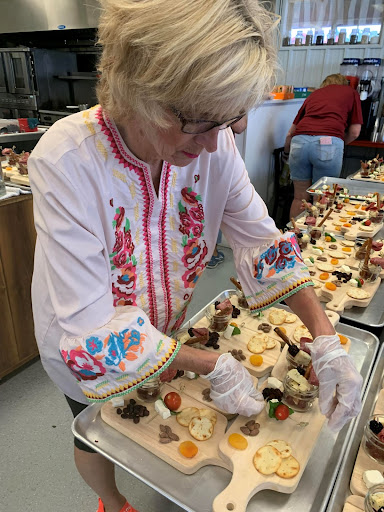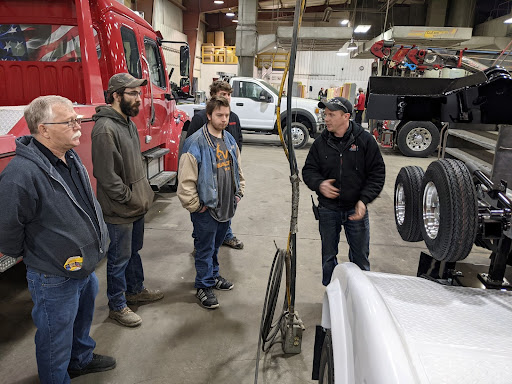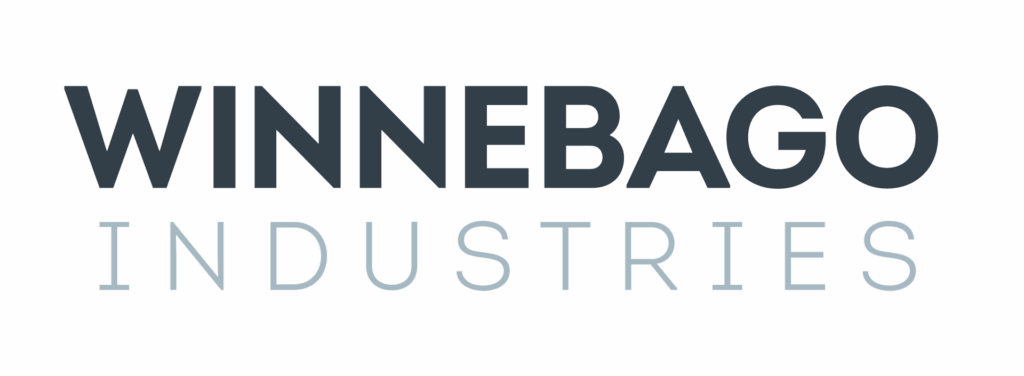Workplace learning program focuses on teachers to help close labor gap

MICHAEL CRUMB Mar 25, 2022 | 3:52 pm
4 min read time
920 wordsAll Latest News, Economic Development, EducationEducators and students from several schools in the Northeast Iowa Community College region participate in a Worksite Exploratory Event at Zip’s in New Hampton that was coordinated by the Iowa Intermediary Network. Photo submitted by Iowa Intermediary Network
A new statewide program that organizers hope will help develop the talent pipeline in Iowa and increase work-based learning opportunities in schools will kick off the summer, building off a pilot program already in place in southwest Iowa.
The Educators in the Workplace Program is a partnership among the Iowa Intermediary Network, the Area Education Agency, the Iowa Business Council and Iowa Association of Business and Industry.
As the state continues to struggle with labor shortages, leaders say the program can be another tool used to build the talent pipeline by creating more work-based learning opportunities for students, and more opportunities for them to enter the workforce sooner.
According to the Business Council’s Competitive Dashboard, released March 3, the number of schools in Iowa with work-based learning programs increased from 121 in 2020 to 329 in 2021.
Joe Murphy, the Business Council’s executive director, said work-based learning is usually focused on students, and Educators in the Workplace is designed to engage teachers and businesses in the process.
“This gives teachers an opportunity to kind of jump in quickly for 40 hours and learn what it takes to succeed in an industry, what are the skill sets needed for their students, what are the things that they should maybe make their students aware of,” he said. “They can share with kids why they are learning a particular math equation … and here’s why [they] need to learn this now as a 16-year-old.”
Murphy said that will hopefully help answer the question “Why do I need to learn this?”
“It can show how what you’re learning today can impact your professional career, two, three, four years down the road, which I think is really powerful,” he said. “As a 16-, 17-, 18-year-old, it’s difficult to make that connection, but if you can have the authentic relationship with a teacher sharing their personal experience, it provides more value and more authentic validation that what they’re learning in the classroom today is going to help them better understand this moving forward so they can be more successful in a career.”
The program “captures and aligns the education side with the business side,” he said.
“We’re trying to make sure teachers have an understanding of what opportunities exist so they can in real time talk to their students about what they learned and what things are important for a company or an industry,” Murphy said. “They can almost be an advocate within a school for certain industries, for certain talent development opportunities. If a teacher can get excited about this work, they’ll be more able to generate that talent pipeline for their students and the workforce as well.”
The program can also expose companies to a talent pool outside of what they may traditionally look at, he said.
Murphy said that there is no specific number of companies being sought to participate, but that the program is open to all industries and educators.
Gena Gesing, manager of career and work-based learning initiatives at Northeast Iowa Community College in Calmar and co-leader of the Iowa Intermediary Network’s Technical Assistance Committee, said the program is different from various externship programs that are currently available.
She said the program, modeled after a pilot program that has been operating in southwest Iowa the past couple of years, can be a win-win for both educators and businesses.
“On the business side, it’s a great opportunity to promote their business, and for the educator it’s an opportunity to see firsthand what happens in the business and take that back to their classroom and talk to students about what they learned and what they experienced and how what they’re learning in class translates to the business world,” she said.
 Teachers who participate will receive a $1,000 stipend, and teachers at all levels, from elementary through high school, and school administrators can participate, Gesing said.
Teachers who participate will receive a $1,000 stipend, and teachers at all levels, from elementary through high school, and school administrators can participate, Gesing said.She said schools t
“We have a variety of statewide services in each region for students, and this is an offering for educators,” Gesing said. “It is one more tool in that tool kit and hope
Murphy said building closer relationships between schools and local businesses will hopefully help close that labor gap over time.
“We’re trying to figure out ways in the throes of this workforce shortage to figure out what can we be doing, with school districts in particular, to feed this talent pipeline,” he said.










